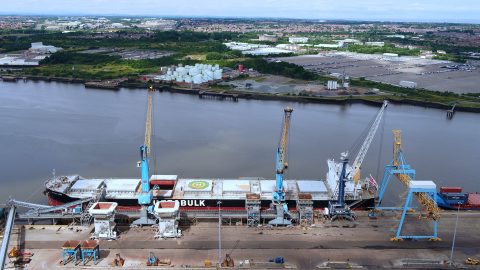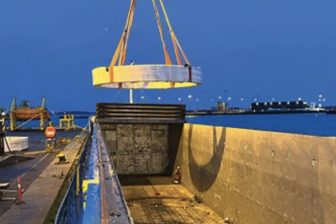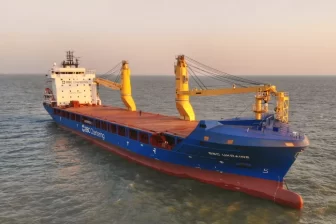
Clean Tyne Shipping Corridor secures UK Government funds
A green shipping future on the Tyne is edging closer as the Clean Tyne Shipping Corridor project secures UK Government aid. The project, which has a total cost of over £500,000 ($613,000) and some £390,000 will be covered by the UK government.
The Port of Tyne, on of the partners in the project, noted that the funding was secured through Round 2 of the Clean Maritime Demonstration Competition (CMDC2). The Port of Tyne will lead this innovative project together with consortium partners, Arup, Connected Places Catapult, EDF Energy R&D UK, Lloyd’s Register, Newcastle University, and the North East LEP.
Decarbonising maritime transportation will require research, development, demonstration, and deployment of scalable zero-emission energy sources at a massive scale. It will also require enabling policies that incentivise the transition to zero-emission fuels and technologies as soon as possible, which in turn can reduce greenhouse gas emissions.
Green shipping corridors, which showcase zero-emission fuels and technologies along maritime trade routes between two (or more) ports, can encourage the early and rapid adoption of alternatives to petroleum-based fuels in the maritime industry.
The Clean Tyne Shipping Corridor consortium intends to support the zero-emission shipping mission and the government’s Clean Maritime Plan by conducting a feasibility study to establish a green shipping corridor from the UK’s north-east coast, with the goal of connecting to the European Green Corridors Network. This will be an ambitious alliance among countries, the private sector, research institutes, and civil society to develop, demonstrate, and deploy zero-emission fuels, ships, and fuel infrastructure together.
Building on previous collaboration in the region, including through CMDC Round 1, the consortium partners have brought key stakeholders across the value chain together to collaborate and work towards establishing at least one of the six green corridors pledged in the Clydebank Declaration at COP26 by 2025.
The consortium will establish the green shipping technology requirements for both vessels and landside infrastructure to create this new corridor. The partners will also produce a roadmap for implementation, tackling barriers such as the regulatory framework, information sharing, and infrastructure investment.
The project’s outcomes will serve as a blueprint for driving rapid diffusion and mobilising demand for green shipping. For example, once the infrastructure to provide zero-emission fuel for one green corridor is in place, it can then be used for shipping on other, adjacent routes.
About CMDC2
The Clean Tyne Shipping Corridor is part of the Clean Maritime Demonstration Competition Round 2 (CMDC2) which was launched in May 2022, funded by the Department for Transport and delivered in partnership with Innovate UK. As part of the CMDC2, the Department allocated over £14m to 31 projects supported by 121 organisations from across the UK to deliver feasibility studies and collaborative R&D projects in clean maritime solutions.
The CMDC2 is part of the UK Shipping Office for Reducing Emission’s (UK SHORE) flagship multi-year CMDC programme. In March 2022, the Department announced the biggest government investment ever in our UK commercial maritime sector, allocating £206m to UK SHORE, a new division within the Department for Transport focused on decarbonising the maritime sector. UK SHORE is delivering a suite of interventions throughout 2022-2025 aimed at accelerating the design, manufacture and operation of UK-made clean maritime technologies and unlocking an industry-led transition to Net Zero.



